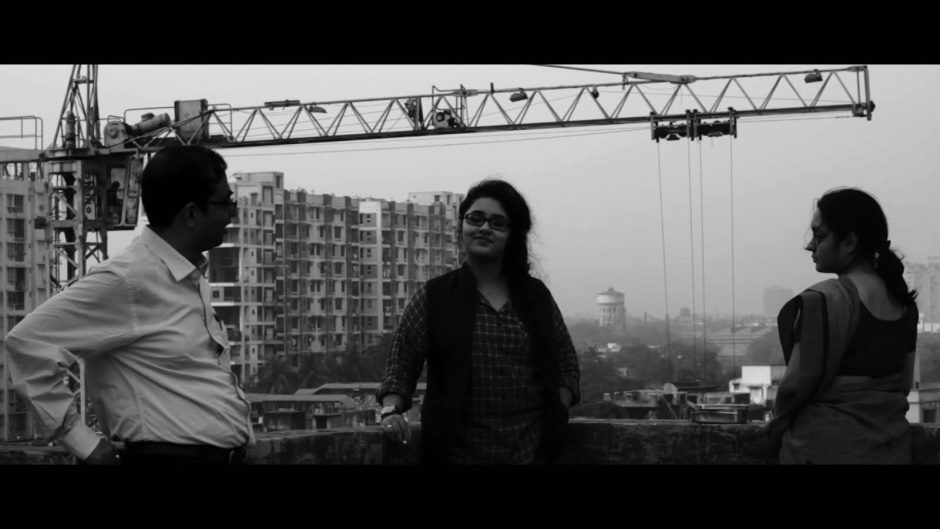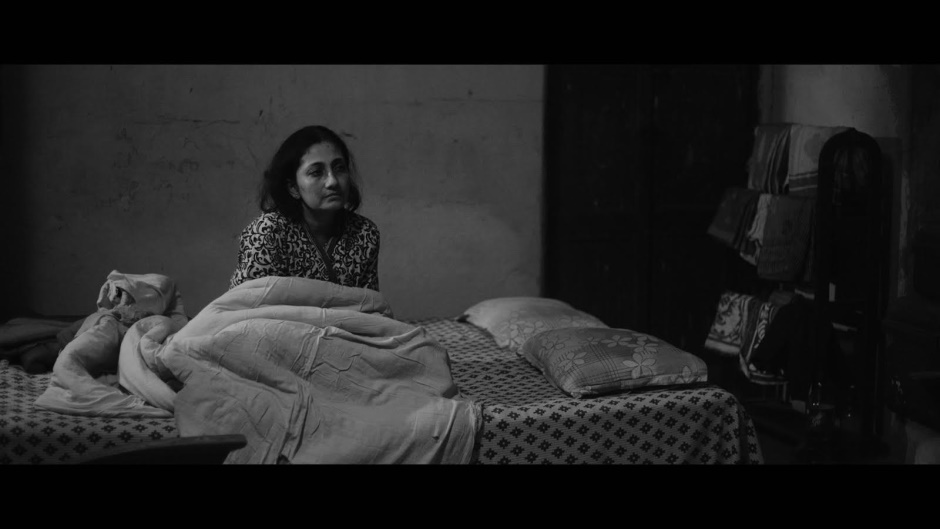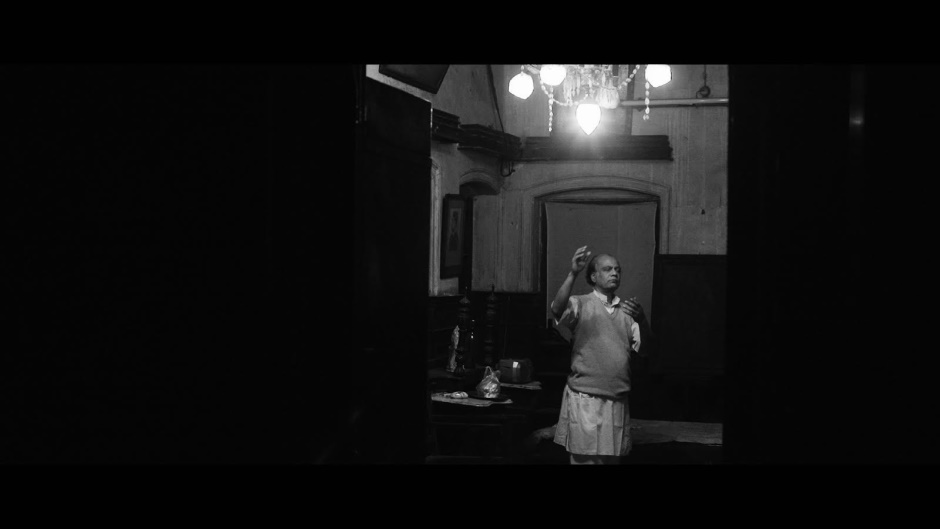Ahead of the UK premiere of Manohar and I as part of Not Just Bollywood, Dr Sanghita Sen caught up with director Amitabha Chaterji.
_______
“Just a few minutes later, something magical happened. I felt I hadn’t seen anything like this in my entire life. What I was watching was drastically different in a very remarkable way.”
Sanghita Sen (SS): How did you come to filmmaking? Tell me a bit about your background.
Amitabha Chaterji (AC): I was trained as an Engineer. After graduating, I worked in a company for about 6 months and then I started my own software development business which I continued building for the next 5 years or so. Until then I had no connection with the world of filmmaking other than occasional visits to the theatre for watching films, like everyone does. [I] didn’t even think that I would make films. My coming to filmmaking is actually quite interesting. 15th August 2008, in one of our regular get-togethers at Nandan (a state-government-run film centre in Kolkata), a friend offered to take me to a film screening for which he had an extra ticket. When I enquired about the film, he told me that it was a film from Sweden. I refused outright to go saying that I wasn’t up for an intellectual film. But he kept insisting. I finally went to the screening. Inox, Kolkata was holding a Retrospective on Bergman. That was my first encounter with the arthouse cinema besides the films of Satyajit Ray. I had absolutely no idea about European arthouse cinema. I used to go for Hollywood or Bollywood, like many others. I grew up in a locality with three single screen cinemas in the neighbourhood. So, we got to watch a lot of these films.
So, when I entered the dark theatre…
SS: Are you referring to the retrospective?
AC: Yes, the Bergman Retrospective held in Kolkata. Just a few minutes later, something magical happened. I felt I hadn’t seen anything like this in my entire life. What I was watching was drastically different in a very remarkable way.
SS: What was the film?
AC: Wild Strawberries.
SS: That’s a beautiful film.
“What happened as a result of this immersive viewing of intense films, was that I couldn’t anymore concentrate on my software development business. The schedule of my day-to-day life was completely destabilised.”
AC: Yeah, that was my first encounter with European arthouse cinema. You know, the film impacted me so much that I couldn’t sleep at night after coming home. The retrospective continued for four more days, and I went every day to watch each film being screened there including Cries and Whisper, The Silence, Seventh Seal and Autumn Sonata. What happened as a result of this immersive viewing of intense films, was that I couldn’t anymore concentrate on my software development business. The schedule of my day-to-day life was completely destabilised. It was like a state of trance for me. I’d go to the office yet wouldn’t be able to stay there for long. In the pretext of some fictional meeting, I’d visit Seagull Bookstore. They used to have a great film library. I used to take a daily pass to watch films one after the other until the shop closed at 8. I was in such a state for about a year. And then I realised that it could not continue like this for long. In between something else also happened. In Kolkata we have an organisation called Chalacchitra Satabarsha Bhavan (the Moving Image Centenary Building) that runs film appreciation courses. I took that course. Watching more films and discussing them throughout the day had been a huge influence on me. I understood that the business I was doing was not for me. So, I shut down my business and slowly made my way into the process of filmmaking.
SS: This is really fascinating. It is hard to predict what will summon an individual to their calling. Sometimes the path that our heart wishes to take could even be very risky in terms of getting us a livelihood. This is particularly true for individuals from a middle-class background in India for our constant preoccupation with security in life. Despite its association with glamour and fame, Indian middle class is still not very comfortable with the idea of choosing film as a career path for the sheer uncertainty that it is associated with. And you were already a trained engineer and a successful businessman. So, it must have been even harder for you. Were you scared?
AC: No, I didn’t really feel scared. Both my parents and my girlfriend of that time were quite apprehensive about my career move towards filmmaking. In fact, my break-up happened because this career choice was seen as a drastic decision. Even my mother was quite tense. My uncle – who I’m very close to – was also quite apprehensive, but no, I wasn’t worried at all.
SS: I asked you this question because many people switching to filmmaking from other professional fields find it difficult to make an entry to this highly competitive and hierarchical system in the film industry. The initial challenge triggers a strange apprehension about failure, self-doubt, and insecurity. The thought of whether the decision was right could, in a way, seriously impair one’s creativity. Did you also feel something like this?
AC: Actually, in cinematic masterpieces, one encounters some very crucial existential questions – as to how an individual gets spent out, burnt by the day-to-day mundaneness. These are not the only things, of course, but these aspects fascinated me the most. I found in this a reflection of a similar sense of exhaustion that I, myself, was experiencing in my profession. This simultaneously moved me deeply and created in me a kind of urgency to follow the way I wanted. By that point, I had already left the sense of fear and insecurity far behind. I was motivated and I was curious. I knew I had to be, and I went on to make films.
“I think – in fact I tell this to my team also – that I want to experience the same intimacy with my process and my film that a poet or a painter is privy to in the process of creating their poetry or painting.”
SS: Who helped you with the camera for your film?
AC: The cinematographer for Manohar and I was Madhura Palit. Most of the film was shot by her. But I also shot some parts of it.
SS: How did that work? That is two people working with two cameras. What is the reason behind this decision?
AC: Actually, I like to be in control of the project. I work with a very detailed plan about everything in my film including the composition of each frame, the exposure, the colour, light etc. I do all this very meticulously. I think – in fact I tell this to my team also – that I want to experience the same intimacy with my process and my film that a poet or a painter is privy to in the process of creating their poetry or painting. I am aware that it is very hard for a filmmaker to experience a similar privacy or intimacy as filmmaking is a collective work with a group of technicians and talents. But I try to create a situation where there is candidness among us to avoid barriers, so that some extent of intimacy with our work could be experienced. It is possible that some of my collaborators may also feel restricted because of this, and it is totally understandable because members of my team are also creative people. But I rather strictly keep that creative space to be free of intervention of any kind. I don’t know whether that is right or wrong. I just want to enjoy that moment of intimacy with my filmmaking.
“I’m very happy that it is reaching audiences in the UK. I hope people like it there. HOME Manchester has a very good legacy of fine curated programmes and equally receptive audiences.”
SS: What kind of light do you use? In Manohar and I, I noticed you used chiaroscuro technique very efficiently. How did you create that?
AC: I’m a minimalist when it comes to lighting. I usually shoot in natural light. If I have to use some artificial source of light, I just used a bulb or so, just the bare minimum to create the lighting scheme of the film.
SS: What camera did you use to shoot Manohar and I?
AC: I shot the film with a mobile camera—iPhone 5S—to shoot nearly 80% of the film. I used Sony a7s Mark ii for some indoor shooting in really very low light. That’s a camera that performs well in low light. Using an iPhone was also very convenient for me because I work with a really small team: only one person to look after the camera, one person for sound, one person to look after the production, one production assistant, and me. It works well with my pattern. In fact, for my current project I am doing the camera myself along with the editing. As I said before, it remains within my control, and I get to enjoy the intimacy of a solitary process. While working with a cinematographer, it is not possible to have that solitude. But there is one aspect of filmmaking that I never do myself and that is sound. I just don’t know anything about sound design. So, I take help from an expert sound designer. But the other departments such as camera, colour, edit, I like to do by myself.
SS: Did you edit Manohar and I?
AC: No, I didn’t have the system or the skills then to edit the film. Simanta Mukherjee did the editing while I oversaw the process.
SS: I’m guessing you must have done location shooting and used sync sound. Where did you shoot your film and how long did it take?
AC: Yes. The film was shot on location, mostly in North Kolkata and a part in Baruipur, a few miles away from Kolkata. We shot the film in 8 days in January 2017.
SS: When was it theatrically released?
AC: Pandemic messed up things and everything we planned for the film slowed down. We were able to send the film in a couple of festivals and later on screened it on some OTT platforms. But it was mostly hard to let the film out in the world for people to watch.
SS: One good thing is that you are able to have the UK Premiere of the film at HOME Manchester. How do you feel about it?
AC: I’m very happy that it is reaching audiences in the UK. I hope people like it there. HOME Manchester has a very good legacy of fine curated programmes and equally receptive audiences. I look forward to learning about people’s reaction to Manohar and I.
SS: Thank you so much Amitabha for talking to us. All the very best with your next film.
_______
Bio
Amitabha Chaterji is the director of Manohar and I which is going to have its UK Premiere in October 2021 at Home Manchester.
Dr Sanghita Sen is Honorary Fellow of Film Studies at the University of St Andrews. She is a practice-based researcher, documentary filmmaker and curator.
Manohar and I screens on Mon 4 Oct, 20.30, as part of our Not Just Bollywood season, with a recorded introduction from director Amitabha Chaterji.


